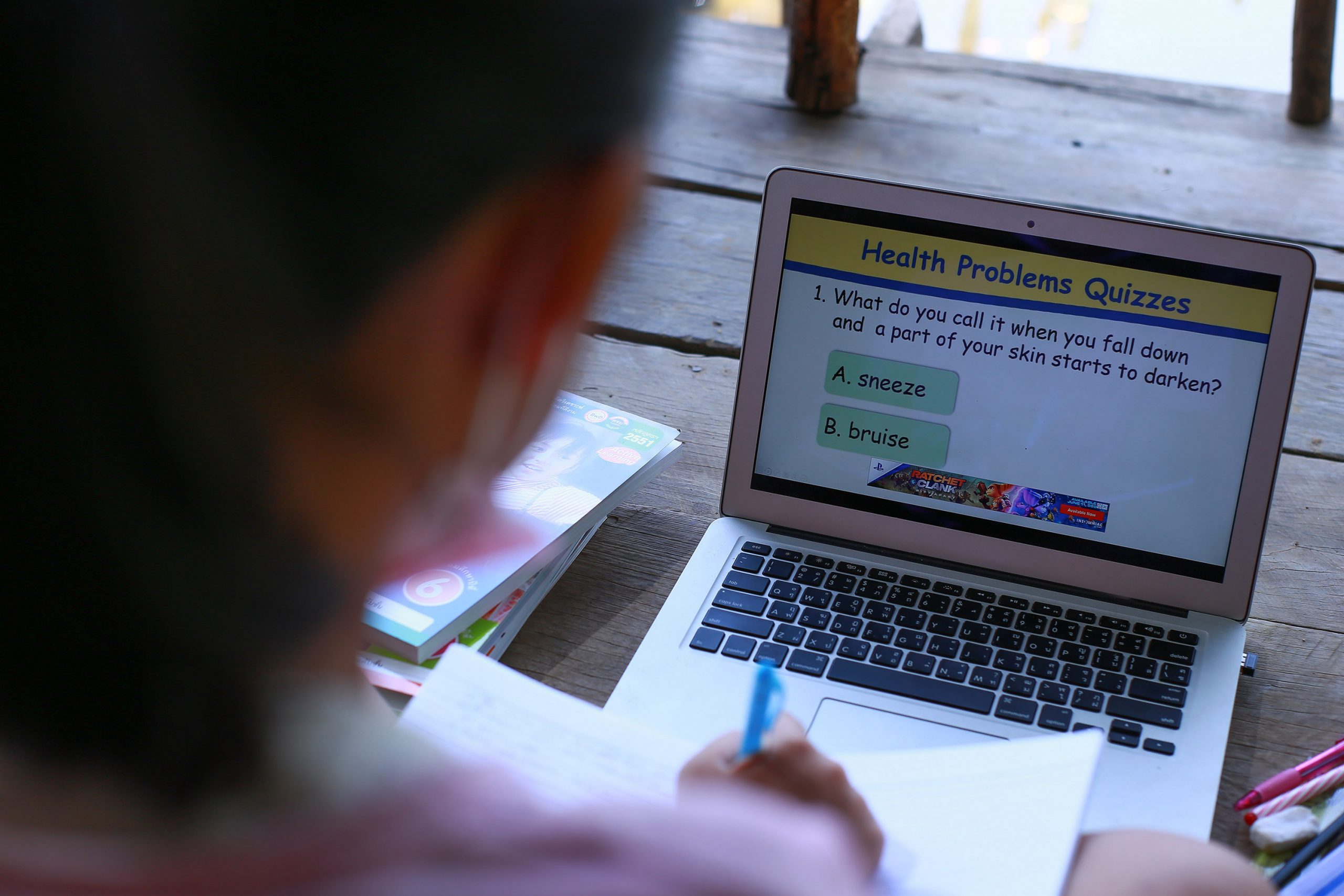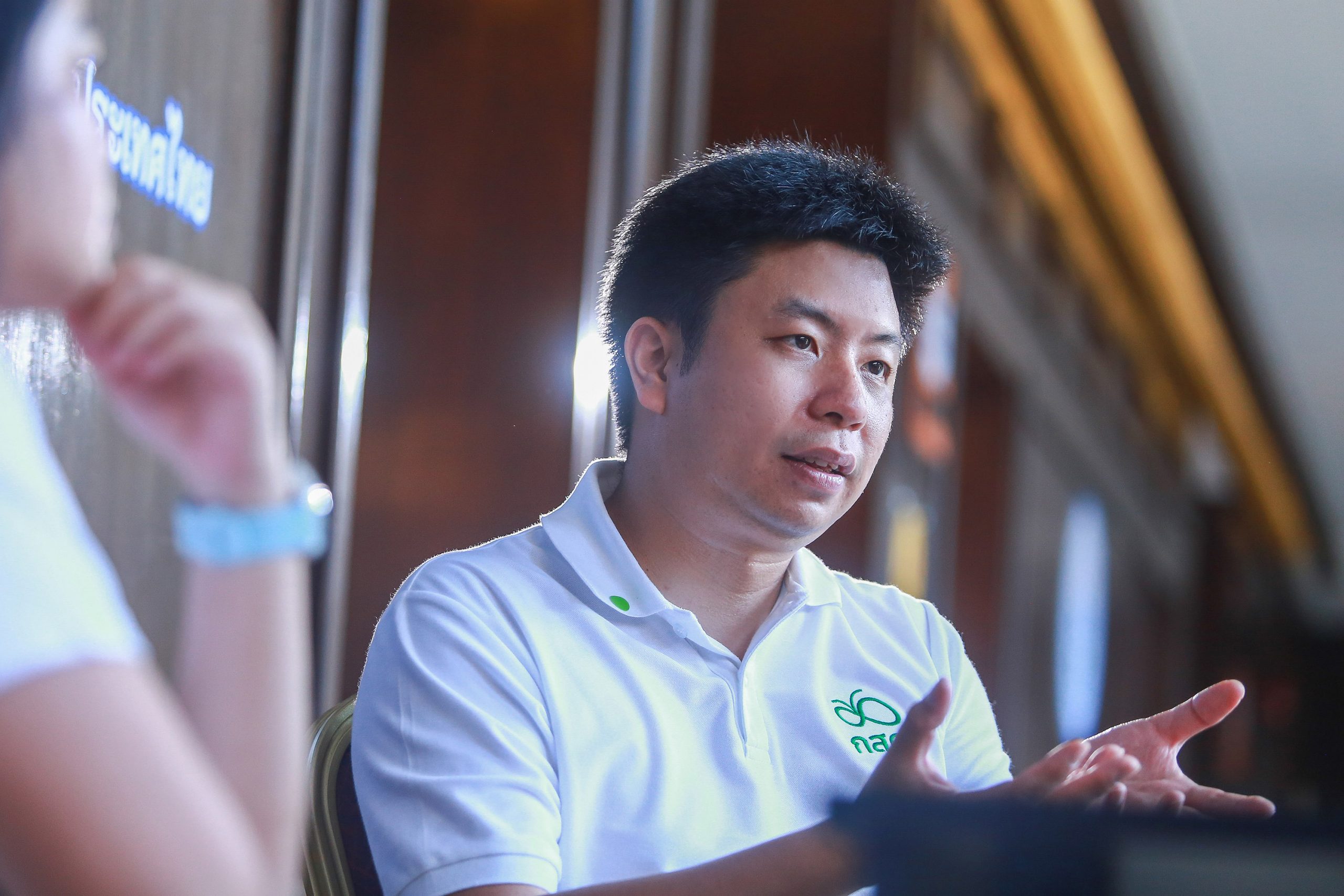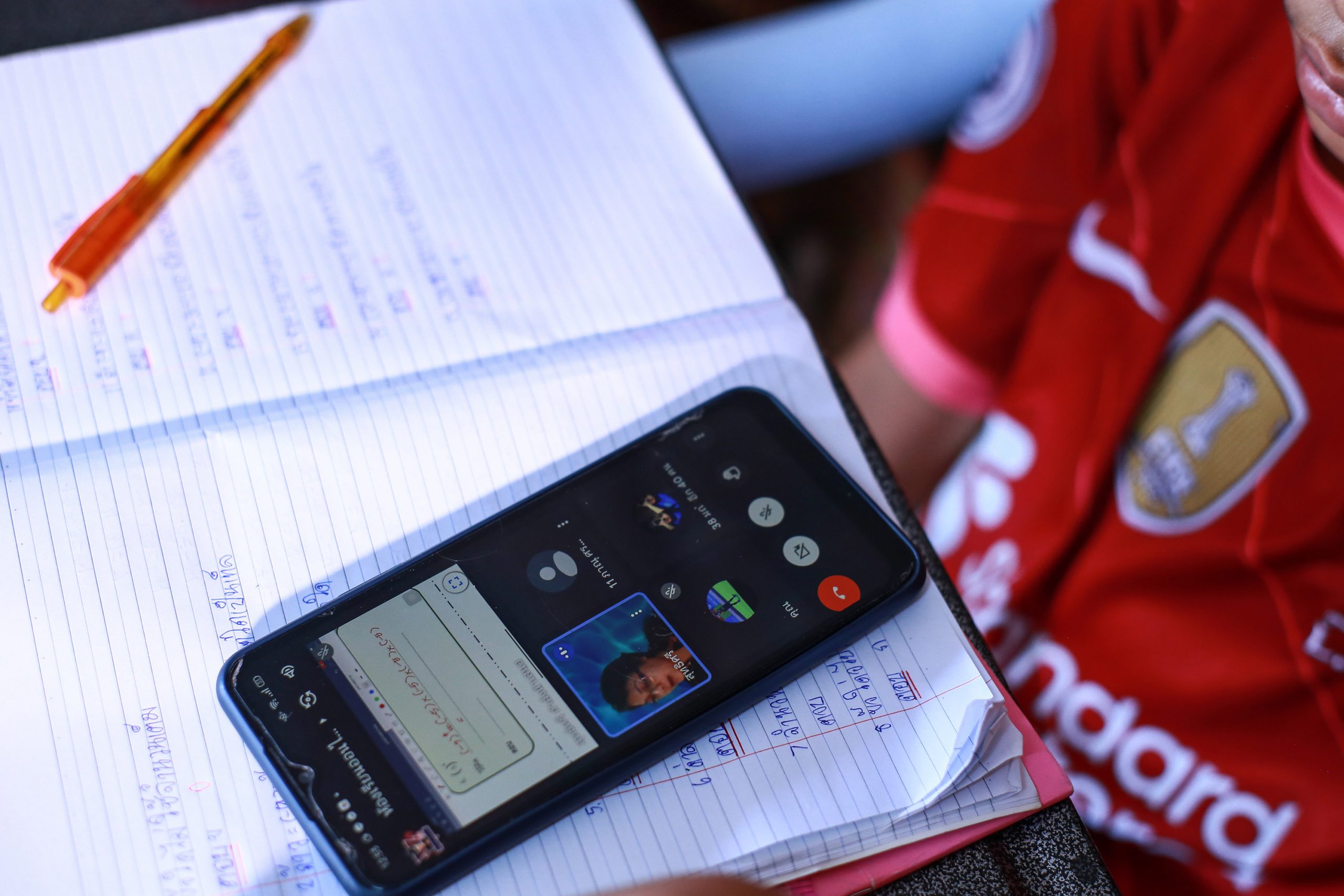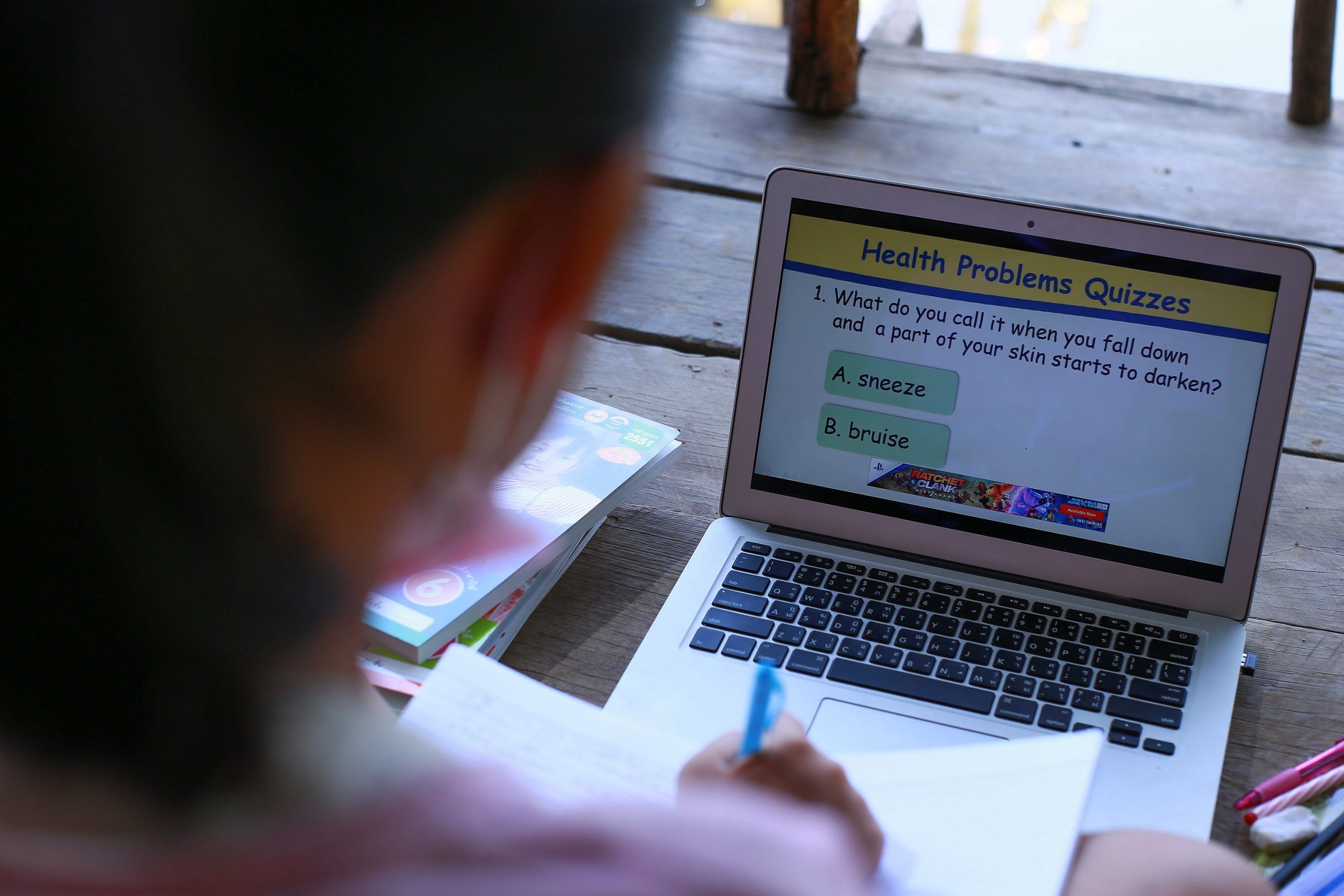Aug 11, 2021 – Today, dtac announced it is providing SIMs with unlimited internet connectivity to 2,000 children in Bangkok under the supervision of Thailand’s Equitable Education Fund (EEF). This will allow these schoolchildren to continue studying despite the Covid-19 lockdown.
Dr. Kraiyos Patrawart, Deputy Managing Director of the Equitable Education Fund (EEF), said, “The COVID-19 pandemic has impacted both public health and the economy. Many families found themselves with more dependents and many adults have become jobless. EEF found that the average household income of children under EEF supervision dropped by 11 percent in the academic year 2019-2020, down to 1,021 baht per month or only 34 baht a day. The fresh wave of Covid-19 has led to an increase of 10 percent in acute poverty.”

Mr. Sharad Mehrotra, Chief Executive Officer at Total Access Communications Plc or dtac, said, “With Thailand now under another lockdown and all schools closed, we must find ways for children to study remotely. Unfortunately, online learning can be a struggle for children who cannot afford a fast and reliable connection. Thus, dtac has several initiatives to support uninterrupted connectivity for students. And the 2,000 SIMs dtac distributed to disadvantaged schoolchildren are one more way to ensure unlimited connectivity for those who need it most.”

The SIMs distributed by dtac come with unlimited internet at 4 Mbps, which is sufficient for videoconferencing and any other educational needs the children may have.
“dtac is committed to creating a digitally inclusive society under the responsible business strategy. We’re delighted to partner with EEF to narrow the gap of educational inequality. And we look forward to seeing disadvantaged children connected once more with their teachers and with online learning tools,” Mr. Mehrotra added.
According to its survey, EEF categorizes 151,000 children as the poorest students in Thailand. The average monthly income of their family members is between 40-300 US dollars (about 1,300 to 9,900 baht). Bangkok is one out of 10 provinces with the highest number of poor children.
EEF also found that over 270,000 children face learning difficulties without access to the internet in the provinces most affected by Covid-19. Thus, dtac and EEF announced they would work together towards a long-term online learning solution to further these children’s digital inclusion.

Mr. Kraiyos said, “Connectivity plays a critical role in keeping schoolchildren connected to their educators, reducing inequality and enabling distance learning. Access to the internet neutralizes the impact of lockdowns and increases access to inclusive education for children. Therefore, internet connectivity is essential social welfare on top of food and health security. As the government cannot do this alone, the private sector can help bridge this gap and reduce disparities among children. We are also supporting these 2,000 children with the StartDee application that will help them gain access to online learning under the project ‘Free School-in-a-Box.’”

Previously, dtac launched a number of initiatives to support distance learning, supporting connectivity for schoolchildren and youth to alleviate the additional costs caused by Covid-19. For example, the Happy Work & Learn package offers unlimited data allowance with a maximum speed of 10 Mbps for productivity apps, such as Microsoft 365, Zoom and WebEx.
In addition, dtac is working with the office of the National Broadcasting and Telecommunications Commission (NBTC) to provide a free-of-charge package of online learning, allowing schoolchildren unlimited use of productivity apps – MS Teams, Zoom, Google Meet, Web-Ex, and Line Chat – with a maximum speed of 2 GB monthly for two months. Schoolchildren can apply to join the program through their school. The program will commence from August 15 onwards.

About dtac
dtac is a leading mobile connectivity provider operating with the purpose of connecting customers to what matters most. Under our responsible business strategy, we focus on seven pillars: governance, data privacy, supply chain sustainability, digital inclusion, environment and climate change, human rights and health and safety. This ensures we can empower society with connectivity sustainably.
About EEF
Established under Thailand’s Equitable Education Act of 2018, EEF’s role is to reduce education inequality through systematic research, teacher development and financial support for children and youth that need it most. EEF is also one of the founding members of the global Equitable Education Alliance (EEA).

